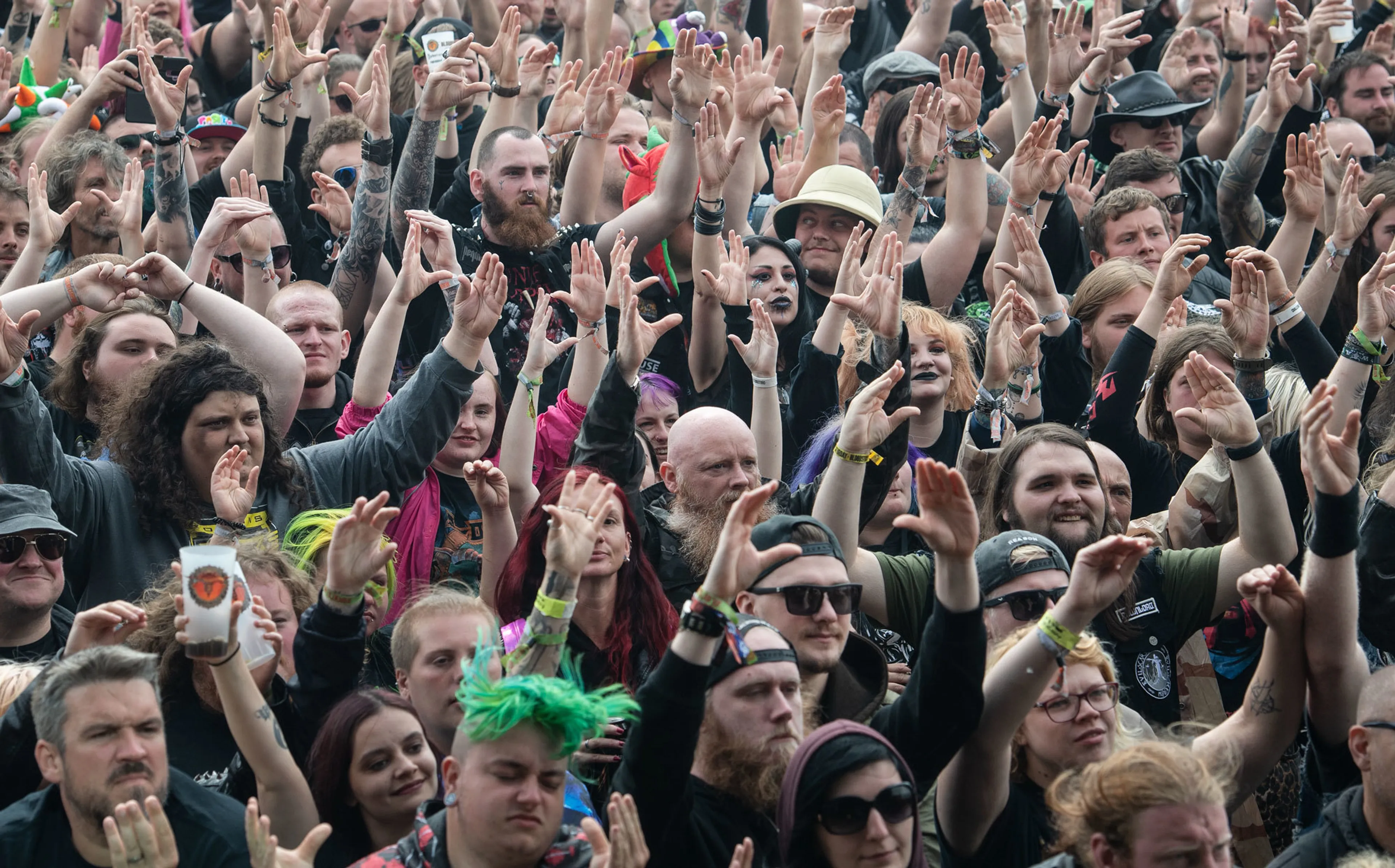As Vicky has pointed out, not every band they book is universally popular and some people have their own narrow ideas of what a ‘Bloodstock band’ should be. When Saturday’s headliners Parkway Drive were first announced, certain parts of the internet reacted as if the festival had said it was going to sacrifice cute, fluffy animals onstage for two hours instead. Or are we thinking of Watain’s set last year?
“I think the problem is that sometimes the minority can be incredibly vocal,” Vicky sighs. “I was embarrassed by some of the reactions. Some of the comments we were getting were ridiculous. And it’s always the same – Parkway will play, they will absolutely level Bloodstock and everybody will say it’s one of the bands of the weekend.”
She’s not wrong. Despite the threat of severe weather that saw Cradle Of Filth's set postponed, Parkway’s set is one of the most explosive Bloodstock has ever seen – both literally and figuratively - and it goes down a storm with the vast majority of the crowd.
It’s spectacular, but Bloodstock isn't all about the big hitters on the main stage. The Sophie Lancaster stage (which pays tribute to Sophie and supports the Sophie Lancaster Foundation – please check them out) offers a platform to smaller bands from all over the world and from every part of the varied metal spectrum.
"We first played two years ago and just playing put us up a big step," says Boss Keloid frontman Alex Hurst after their own stunning set of unclassifiable, sort of techy, sort of prog-sludge. "And I think a lot of people come for the underground bands. We're not really a traditional sounding band. We're a little bit weird, oddballs. Two years ago we had people telling us they sort of stumbled on us and really enjoyed it.
"The way they treat bands is phenomenal as well. You open your vehicle and people start lugging your gear for you. That's beautiful."
